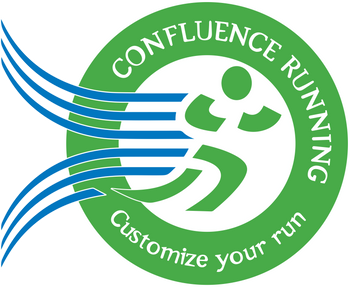Thinking About Running a Marathon? Here’s How to Know If You’re Ready

From Start to Finish: Defining Realistic Marathon Goals for First-Timers
Starting marathon training is a monumental decision that reflects a desire to challenge your limits and commit to a deeply rewarding journey. Running 26.2 miles may sound daunting, but with dedication and consistent effort, it’s achievable for many people. For beginners who can stay on their feet for 6-8 hours, completing a marathon can become a life-changing milestone. This journey, when approached with respect and preparation, can be positive and deeply fulfilling. Your training will dictate your experience on race day, influencing whether you:
- avoid injury,
- maintain strength throughout the miles,
- recover smoothly afterward, and
- achieve your personal goals, whether that’s finishing strong or chasing a specific time.
Training: The Real Challenge
While race day is the big event, the training leading up to it is the real test of your commitment. For several months, you’ll build up your endurance by running increasingly longer distances, pushing your limits in speed workouts, and ensuring you rest adequately to prevent burnout or injury. This process can be grueling, often requiring you to adjust your daily routines, wake up early, or dedicate weekends to long runs. However, this intense effort is what makes crossing the finish line so rewarding. You’ll discover not only physical strength but mental toughness you may not have known you possessed.
Sacrifices and Support
Training for a marathon isn’t a solo endeavor; it often requires the support of those around you. Sacrifices like skipping social gatherings for training runs or managing fatigue from long workouts can impact relationships and daily life. Building a strong support network of family, friends, and fellow runners can make a world of difference. Whether it’s encouragement, shared meals after training, or someone to cheer you on during long runs, the people who support your journey are an invaluable part of your success.
How Long Should You Train?
For most beginners, building a strong foundation before starting marathon training is crucial. Experts generally recommend at least six months to a year of consistent running experience before committing to marathon prep. This period allows your body to adapt gradually to the stresses of long-distance running, reducing the risk of injury and burnout. As a beginner, you should aim to gradually increase your longest runs, working up to 18-20 miles during your training cycle. This will ensure you’re prepared to handle the demands of race day safely.
If your goal is not only to finish but to achieve a specific "A Goal" finish time, the preparation becomes more complex. This might involve 2-3 years of consistent training, focusing on building speed in shorter races like the 5k, 10k, and mile. Incorporating strength training, such as lifting heavy weights 2-3 times per week, is essential to maintain muscle strength and prevent injuries, especially as we age. Strength and speed training, paired with increased mileage, create a strong base that will support your goals on race day.
Respecting the Distance
The marathon distance of 26.2 miles requires respect. Many runners experience hitting “the wall,” a point where glycogen stores are depleted, causing extreme fatigue and slowing down. This isn’t just a theory; it’s a reality for many who tackle long distances. To prepare, it’s crucial to train consistently, incorporating strategic long runs, nutrition planning, and recovery practices. Underestimating the physical and mental demands of the marathon can lead to a challenging experience, but with thoughtful preparation, you can meet these challenges head-on.
The Importance of Proper Footwear and Sports Bra Fittings for Beginner Marathoners
For beginner marathoners, having the right footwear and properly fitted sports bras is essential to ensure comfort, reduce injury risk, and enhance performance during training and on race day. At Confluence Running, our Dynamic Footwear Specialists are trained to assess your gait, foot shape, and running style to recommend shoes tailored specifically to your needs. Properly fitted shoes provide the right support and cushioning, preventing issues such as blisters, shin splints, and joint pain. Additionally, our specialists can help you find high-quality, well-fitting sports bras that minimize discomfort and provide necessary support throughout your runs. Investing in the right gear not only makes your marathon journey more comfortable but also helps you train with confidence and focus. Let Confluence Running’s experts set you up for success on every step of your marathon adventure.
Focusing on Consistency and Process
The key to marathon training isn’t perfection but consistency. Gradual improvements in mileage, pace, and strength over time reduce injury risk and lead to better performance. Progress may be slow, but each step, run, and workout builds toward race day success. Stay focused on the journey, trusting that every training run brings you closer to your goal. Completing a marathon is about more than the race itself—it’s about the commitment and growth you experience along the way.
Knowing When You’re Ready
Ultimately, deciding when to start marathon training depends on your current fitness level, available time, and readiness to make sacrifices. Listen to your body and be honest about what you can handle. If you feel a genuine desire to tackle the challenge and are prepared to dedicate yourself to training, you might just be ready to take on 26.2 miles—and transform in the process.
Top SEO Tags for Marathon Training and Running Success
Marathon Training Tips, Beginner Marathon Training, Running for Beginners, Marathon Nutrition Guide, Best Running Shoes for Marathons, How to Train for a Marathon, Long Distance Running Tips, Marathon Preparation Plan, Building Running Endurance, Strength Training for Runners, Marathon Training Schedule, Avoiding Running Injuries, Running Nutrition Tips, Running Shoe Recommendations, Marathon Goal Setting, Marathon Training for First-Timers, Effective Marathon Recovery, Running Support and Motivation, Weekly Running Mileage Plan, Cross-Training for Marathoners
Meet the Author: Matthew Gawors
Matthew Gawors is the Marathon, Triathlon, and Aquatics Coordinator for Health & Wellness Studies at Binghamton University, where he brings his passion for endurance sports and fitness education to life. With a deep commitment to promoting health, wellness, and athletic excellence, Matthew inspires both his students and the broader community to push their boundaries and achieve their personal bests.
An experienced endurance athlete himself, Matthew holds numerous certifications, including USATF Level 2 in Jumping and expertise as a Dynamic Footwear Specialist, Personal Trainer, and Triathlon Coach. His hands-on knowledge of training methodologies, combined with his academic background, equips him to lead impactful courses and training programs, empowering individuals at all levels of fitness.
Matthew is also a successful entrepreneur, co-owning Confluence Running, which operates multiple locations across New York. His work in this arena emphasizes creating inclusive running spaces and offering tailored solutions for runners, from footwear recommendations to comprehensive race training plans.
Beyond his professional pursuits, Matthew is deeply committed to serving his community through wellness campaigns, race organizing, and public health initiatives. In his spare time, you’ll find him engaging in cycling, running, or sharing time outdoors with his wife Jenna and their young daughter. Connect with him via email at Gawors@Binghamton.edu to learn more about his expertise, classes, or to collaborate on health and wellness endeavors.


